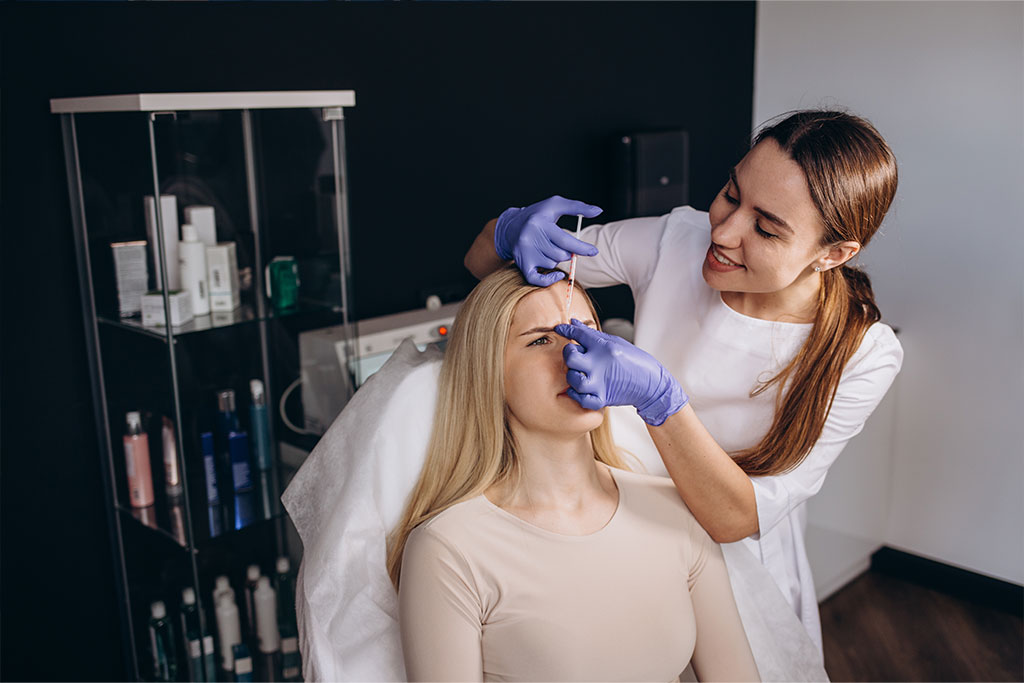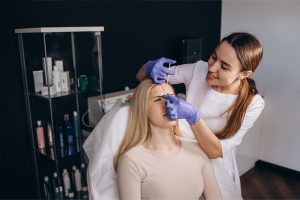Differences in Botox Treatment That Come with Age

Botox has become quite synonymous with wrinkle reduction and youthful rejuvenation, thus becoming a popular treatment searched out by women of any age. However, the effects and approach to Botox can be quite different as we work our way through the decades. The question many people ask is, does Botox make you age faster? Simply, no; however, here are the nuances that go along with treatment outcomes and considerations based on age.
No matter whether you’re in your twenties or well into your sixties, understanding these differences will allow you to make an educated decision about Botox.
Are There Age Limitations in Botox Treatment for Women?
One thing that most people believe about Botox is that there is a universal age limit with respect to Botox. Although the FDA has approved Botox for people above 18 years of age, technically there is no upper age limit. However, practitioners usually advise against Botox treatments above 65 years of age. This is also not because Botox becomes unsafe but because it may not give the desired result.
For younger women, Botox is usually used preemptively; it would treat early fine lines and prevent deeper wrinkles. For older women, the idea is mostly directed toward wrinkle mitigation. While there is no hard and fast cutoff age for receiving Botox, every individual’s skin is different, with a different aging process, so I advocate for the importance of age-related recommendations being done on an individual basis.
Main Differences in Treatment Effects in Younger and Older Patients
Younger Patients: A Preventative Approach
For most women in their twenties and early thirties, Botox is used as a way to prevent wrinkles from forming in the first place. While deep-set wrinkles may not be present, dynamic lines-those that occur due to repetitive facial motions-start to form. Botox relaxes the underlying muscles, thereby reducing the chance of these lines becoming static wrinkles with the passage of time. The effects are subtle, offering a fresher appearance without looking unnatural if applied professionally.
Older Patients: Addressing Established Wrinkles
As women grow older, their skin naturally loses collagen and elasticity, leading to deeper and more profound wrinkles. In older women, Botox results may still be remarkably transforming but will need more strategic ways of treatment. Deep wrinkles are usually treated with the combination of Botox along with other treatments, including dermal fillers that create volume and smooth out the area.
While Botox might soften lines and give a fresh look, this treatment would not be as dramatic in older patients. Simply explained, this is because Botox is not able to improve skin thinning and the loss of elasticity that occurs with age. For this reason, many practitioners stress the importance of ensuring realistic expectations about Botox results for older women.
Why is Botox Not Recommended for People Over 65?
Although there is no strict Botox age limit, there are some practical considerations for older patients. It works best for dynamic wrinkles-those caused by muscular action, such as frown lines or crow’s feet. As the skin ages, however, static wrinkles-those that are present even at rest-become more prominent. These types of wrinkles are less effectively treated with Botox alone, and different types of treatments might be more effective.
Besides that, skin quality and muscular tone are affected by the natural aging process. Sometimes, skin gets too thin for Botox to cause noticeable improvements. In that case, one may suggest treatments such as laser resurfacing, microneedling, or even surgical options. That does not mean Botox is not safe for people over 65; that only means patients should not expect as much of a benefit. Because of that, consulting with an experienced professional is in order to see what exactly each person should do.
How to Prolong the Results of Botox
Regardless of age, everyone wants to maximize the longevity of their Botox treatment. While the effects typically last three to six months, several factors can influence how long Botox works for you:
- Follow Your Provider’s Recommendations
Maintaining a consistent Botox schedule can help train your facial muscles, potentially prolonging the effects over time. - Adopt Healthy Lifestyle Habits
Avoiding excessive sun exposure, staying hydrated, and nourishing your skin with quality skincare products can enhance your Botox results. - Avoid Excessive Facial Movements
While Botox reduces muscle activity, repetitive or forceful facial movements can still impact its duration. - Consider Complementary Treatments
Combining Botox with other non-invasive procedures like chemical peels or fillers can help maintain a youthful look for longer.
By following these tips, you can make the most of your investment and enjoy smoother, more radiant skin over time.
Summing Up
Botox has taken anti-aging to a completely new level, providing a non-invasive procedure for wrinkles and helping to keep one looking young. Though the procedure is versatile, Botox treatment needs to be done differently at different ages of a person’s life. Younger women utilize it to prevent wrinkles, while older women use it to soften lines and rejuvenate their look.
Ultimately, the age limit for Botox is less about an exact number and more about understanding what your skin needs, with Botox helping in whatever way it can. Regardless of whether you’re 25 or 65, a consultation with a provider who understands the nuances of Botox will ensure that you get natural, confidence-boosting results.
So, does Botox make you age faster? Absolutely not. When used thoughtfully, it can help you look and feel your best—at any stage of life.



